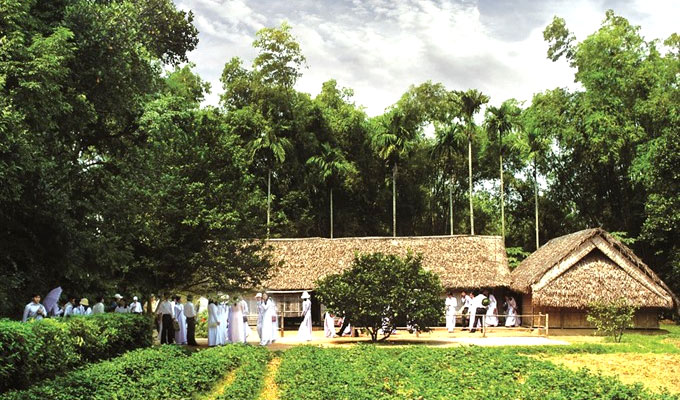Prime Minister Nguyen Xuan Phuc has just approved a master plan to preserve and develop the President Ho Chi Minh Memorial Special National Relic Site in Kim Lien Village, Nam Dan District in the central province of Nghe An.

Cottages in Kim Lien Village, President Ho’s fatherland.
The site has been a popular tourist attraction for domestic and foreign visitors
The plan aims to further praise the personal life and revolutionary career of President Ho Chi Minh and turn the site into a culture-history tourism complex associated with the typical features of the locality.
The master plan involves a total area of more than 270ha of Sen Village, Hoang Tru Village, Chung Mountain relic site, the tomb of Hoang Thi Loan (President Ho’s mother), surrounding agricultural land areas around Chung Mountain site, and Lien Minh Village of Kim Lien Commune.
The farming area surrounding Chung Mountain was added to the master plan to preserve the local huyet rong valuable rice genre and traditional countryside architecture.
Following the plan, specialists will examine the technical facilities of the present Memorial Site and other relic sites of Kim Lien and Nam Giang communes; examine local intangible cultural heritage like traditional festivals, customs and lifestyles; and research the relationship of the local community to the relic site. They will also study the tourism activities at the site.
Specialists will also forecast the development and define social economic growth ratios of the allocated area including proportions of population, labour, visitors, social infrastructure, the urbanisation process, ratios for developing tourism, effects of climate change on the relic site and the environment landscape at the site.
Experts will develop orientations for preserving and developing the relic site.
They plan to restore the site based on fundamental principles for organising natural landscapes and new buildings.
The master plan will be divided into project groups for restoration. The groups include constructions that were originally planned in 2003 and have not been implemented yet, infrastructure work, supporting constructions, intangible culture research and tourist development efforts.